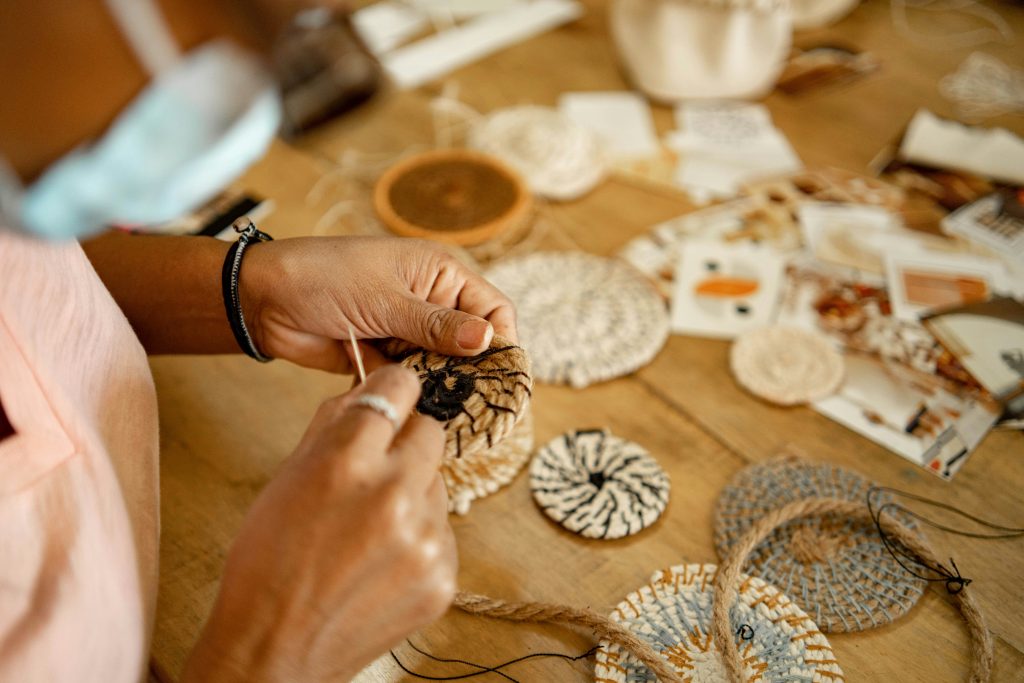In a world increasingly dominated by automation and mass production, it’s perhaps surprising—and deeply encouraging—to witness the resurgence of traditional craftsmanship. From handwoven textiles and handmade ceramics to bespoke furniture and artisanal foods, age-old crafts are finding new relevance in a 21st-century sustainability movement.
This revival isn’t simply about nostalgia or aesthetic preference. It’s being driven by a deeper cultural and economic shift: the urgent need for more sustainable ways of living and doing business. And at the intersection of this shift lies an opportunity—not just for artisans and conscious consumers—but also for sustainability professionals equipped with the right knowledge and strategic insight, such as those developed through the sustainability-focused MBAs at Robert Kennedy College.

Why Traditional Craftsmanship Is Making a Comeback
The modern world has long favored efficiency and scalability, often at the expense of environmental health and community well-being. But traditional crafts, by their very nature, embody principles of sustainability:
• Local sourcing: Craft traditions often rely on locally available materials, reducing the carbon footprint associated with global supply chains.
• Low-energy production: Compared to industrial manufacturing, handcrafting uses significantly less energy.
• Durability and repairability: Artisan products are made to last, opposing the disposable culture of fast fashion and mass-produced goods.
• Cultural preservation: Supporting crafts means sustaining cultural heritage and empowering local communities economically and socially.

The Shift in Consumer Consciousness
The modern consumer is no longer just concerned with what a product is—they care about how it’s made, where it comes from, and who made it. This shift is largely driven by a growing awareness of the environmental and social impact of production processes. Fast fashion, for example, has faced criticism for its heavy carbon footprint, water consumption, and unethical labor practices. In contrast, traditional craftsmanship emphasizes quality over quantity, sustainable sourcing of materials, and ethical production methods.

Sustainability has become more than a buzzword; it’s a lifestyle choice. And with climate change, resource scarcity, and ethical labor issues dominating global headlines, consumers are voting with their wallets. They are increasingly opting for goods that align with their values—products that are not only beautiful and functional but also tell a story of respect for the planet and the people involved in making them.
The Strategic Role of Sustainability Professionals
While the values behind traditional craftsmanship are clear, scaling and sustaining these practices in a global economy requires more than goodwill. It demands leadership, innovation, and a deep understanding of sustainability challenges and business strategy.
This is where specialized education—like the sustainability-focused MBAs from Robert Kennedy College—becomes essential.
Connecting Craftsmanship and Sustainability Through Business Education
The MBA programmes offered by Robert Kennedy College, in partnership with the University of Cumbria, is designed for professionals who want to lead transformative change in energy, environment, and sustainable development.
Students in this programmes gain critical skills in:
• Sustainable operations and resource management
• Environmental policy and ethical governance
• Strategic leadership and innovation
• Global energy markets and renewable energy systems
These skills are vital for reimagining supply chains, creating sustainable business models, and fostering partnerships that support traditional crafts while meeting environmental and economic goals.

Imagine launching a sustainability consulting firm that helps artisan cooperatives become carbon-neutral or leading a corporate social responsibility initiative that sources products from traditional makers while ensuring fair trade and ecological balance. The Sustainability MBA equips graduates to make this kind of impact—bridging the gap between heritage and modern sustainability goals.
A Future Rooted in the Past
As we navigate climate change, resource depletion, and social inequity, we are increasingly turning to practices that are rooted in balance—with nature, with communities, and with time-tested traditions. Traditional craftsmanship isn’t just surviving; it’s thriving, precisely because it offers answers to some of the biggest questions of our time.
And with the right education, professionals can become the catalysts who help scale these solutions responsibly and effectively.
If you’re passionate about sustainability and want to lead in a field that connects tradition with innovation, RKC’s Sustainability-driven MBAs is a powerful step forward.





















